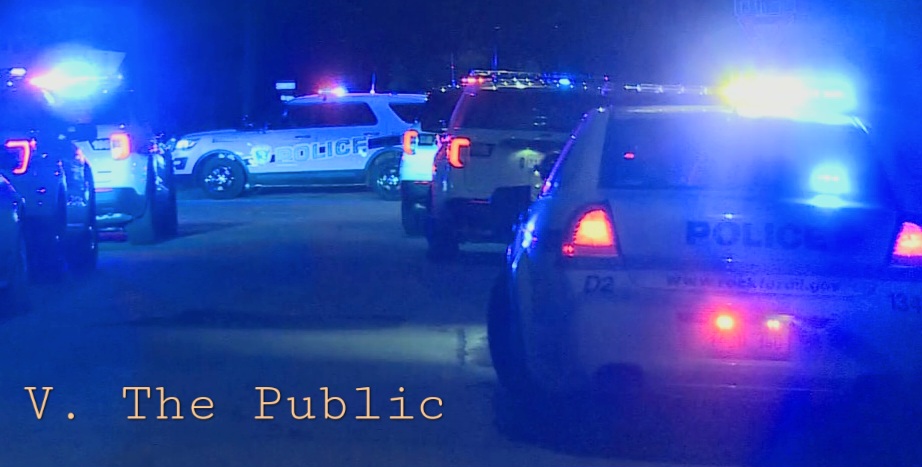This is Part IV of a five-part series about how and why Delaware’s Law-Enforcement Officers’ Bill of Rights (LEOBOR) needs to be reformed, and reformed now. Part I addressed “The Problem” – how LEOBOR has kept police misconduct secret. Part II addressed “The History” – the history of LEOBOR in the First State. Part III addressed “The Myth” – how myths and facts have informed and influenced this debate. Part IV addresses “The Solution” – the need for defense counsel access to these records. And, finally, Part V, “The Public,” will address why public access matters.
We’ve been through the history of how we’ve gotten here, and we’ve amply discussed how we can change things – but why should you (YES, YOU!) care?
Those of us working on this issue for the last three years can tell you that what we’ve heard from some is that the Law-Enforcement Officers’ Bill of Rights (LEOBOR) isn’t top of mind for the general public, like gun violence, public health, and government spending is. It may sound like an obscure and wonky topic, but LEOBOR is much more than an acronym. The simple truth is that police transparency and accountability intersect with public health, gun violence, and public spending.
The issue of police transparency and reversing Delaware’s bottom-rung standing is a matter of public importance because bad police work comes with a cost. The cost is monetary, societal, and, unfortunately, in the most tragic and egregious cases, human life.
Over the last several years, Delaware police have settled more than $3 million worth of lawsuits filed by individuals claiming they were unjustly injured by law enforcement. In the last decade we’ve witnessed several high-profile incidents in which an officer has used force. In some of those cases there was a history of misconduct.
When considering the worst incidents, like the case of Dover officer Thomas Webster, there was a history of force – 29 use of force reports to be exact. Those reports were internal and not all prompted by complaints, but there were warning signs well before Webster physically assaulted Lateef Dickerson. Officer Webster had, according to news reports, seven different activation reports from the Dover Police Department’s early warning system, which is designed to identify officers having trouble on the job. He had also been suspended once.
But when asked why Webster was allowed to remain on the job despite his history, the Dover Police Department said that it was prohibited from discussing disciplinary matters.
“While the department prides itself on transparency, any further comment on this matter would be in violation of Delaware law, which therefore prohibits us from commenting on that issue … “
We know what happened next. A young man in Maryland, Anton Black, needlessly lost his life during a police encounter with Webster that went very, very wrong.
Anton’s death could have been prevented. Perhaps, if Delaware were more open about police misconduct, Maryland public officials could have known about Webster’s history. Maybe it wouldn’t have been so easily swept under the rug. What we do know is that we are at a critical juncture in Delaware. We can amend LEOBOR and prevent the next loss of life and the next massive settlement. We can begin to mend relationships that have been marred by systemic racism and damaged by years of mistrust, abuse, and breakdowns in communications.
You should care about amending LEOBOR because a law that prohibits the release of basic information and a law that protects bad actors is a bad law. Bad laws have consequences. One of the cornerstones of our democracy is the public’s ability to access information about governmental functions. Right now, we’re all in the dark. We’re in the dark about who polices our streets and what happens when they are accused of misconduct.
Amending LEOBOR with real change is a necessary first step. What does that change look like? It looks like retroactive access to police records, access to substantiated and unsubstantiated complaints, access to the public, and access for defense counsel.
Sunshine, they say, is the best disinfectant. LEOBOR reform matters because everyone deserves safe and healthy communities. And safe and healthy communities must be built on collaboration, transparency, trust and openness from those who choose to serve and protect us.
Jon Offredo is the outgoing Legislative and Communications Director at the Office of Defense Services, and a former reporter.

